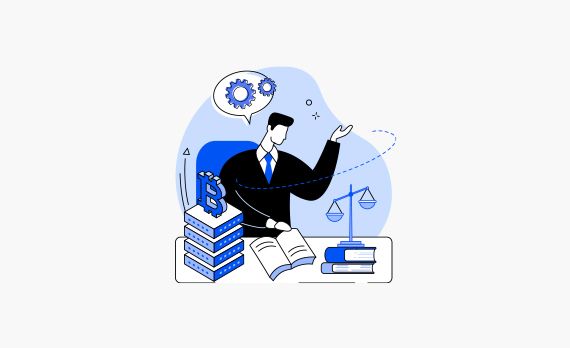4 Ways Society May Change as Blockchain Gains More Acceptance
Learn

The blockchain has found many applications in the financial sector. Its influence is spreading further and changing our society. Learn how our lives might change for the better with this revolutionizing technology.
The possibilities of blockchain are not limited to just cryptocurrencies. This technology has the potential to bring significant changes in the society. One of the key advantages of blockchain is the security and integrity of data. Due to its decentralized structure and cryptographic methods, blockchain provides a high degree of protection. This makes it an ideal solution for storing sensitive information.
Decentralized Power
There is no such thing as an intermediary in blockchain. Data recorded on a blockchain is available to all parties; any transaction can be seen and verified by anyone. A complex cryptographical process takes the place of the database administrator here.
Problems with the bank, governmental, or any other organization’s systems, hacker attacks, fraud, or employee errors can cause failure at any stage. This, of course, happens rarely, but it does happen. Then, important records may disappear or change. These operational risks are inevitable if records are kept by specific organizations and records are kept in only one place. Blockchain technology reduces such risks because it offers a system based on distributed ledgers. Moreover, there is no single person or entity that can tinker with the records and adjust them to their liking.
Justice
There are several ways blockchain can ensure justice. For example, in blockchain, registries with data on asset owners cannot be falsified. The rights of buyers are reliably protected: it is impossible to cancel or change already concluded transactions. If you actually purchased something - for example, tulip bulbs or an apartment - no fraudster will be able to prove that they belong to him. After all, this data is stored on the computers of a huge number of network participants.
Since the information recorded in the blockchain cannot be changed and is visible to everyone, the blockchain can protect against fraud on the part of a partner. It will not be possible to inflate losses, lower prices, or carry out other frauds. Meanwhile, smart contracts guarantee the fulfillment of obligations by counterparties. Let's say the supplier fulfilled its obligations, ownership of the goods is transferred to the buyer, and money is immediately automatically transferred to the supplier.
ID Checks
Globalization and population growth are increasing the need to find cost-effective solutions for identity verification. With blockchain, it is possible to create a unique and unforgeable digital identity that allows users to securely identify themselves.
Blockchain technology has the potential to help society. Since it has the ability to store consistent, immutable digital identity data, blockchain has the potential to revolutionize how government ID information and other personal data is stored and used. It can also help citizens of less-developed countries to step into the digital age.
Regulatory Challenges
Entering any data into the blockchain is an ideal way to store it. For example, it is perfectly suitable for fixing ownership rights to various assets (real estate, securities, etc.), creating a database of car owners, etc. Blockchain is widely used for copyright protection. The notary function is one of the most interesting opportunities that blockchain opens up. A record in a distributed protocol proves that the transaction was concluded at a certain time between specific counterparties.
Blockchain changes the way property is registered. Plus, it reduces the likelihood of disagreements between contract parties, removes the chance of coming across forged documents, and reduces the cost of the process. The Averspace platform in Singapore, for instance, allows sellers and buyers of real estate, landlords, and tenants be able to enter into contracts directly through smartphones, without resorting to the services of outside specialists and organizations.
Conclusion
Every year the number of blockchain-based projects is growing, as well as people’s interest in blockchain. Such facts indicate that in a couple of years, it will be possible to safely carry out any operations using this technology. After all, blockchain can change not only the financial system but also many other systems, as we have already seen. It slowly but very confidently continues to strengthen its position in the world of technology. Will blockchain really change the society? It's already changing it.


